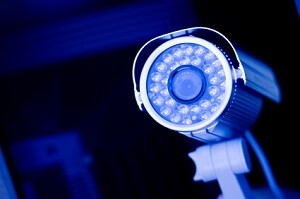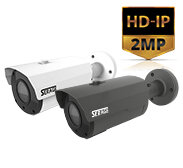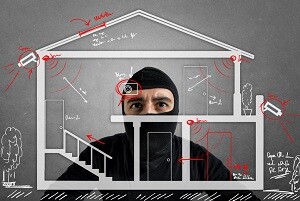 CCTV system design and installation
CCTV system design and installation
Atomik.biz provides Closed Circuit Television (CCTV) system design and installation services. We understand that the solution has to fulfil customer needs but also has to fit the budget. Designing the installation with scalability in mind means adding more cameras when required. Atomik.biz offers integration with computer systems to allow both local and remote viewing.
CCTV systems
Closed-circuit television has been around for decades, but technology has changed dramatically in the last twenty years. It used to work by recording to tape recorders, not unlike the VHS video cassette recorders. All modern systems record to digital video recorders that use hard disks. Digital Video recorders are cheaper, more capable and more reliable.
Atomik.biz specialises in networking CCTV systems, including remote viewing by computers and mobile devices.
Traditional security tape recorders have various problems. Finding incidents is time-consuming, and staff can’t locate events because of tape management failures. Tapes deteriorate over time, and the recording quality is often too grainy to be useful. Police action requires good-quality images, and victims won’t get justice if the video is not up to standard.
Tape drives are expensive and prone to failure. The total cost of ownership is high when considering the price of the recorders and tapes. Managing tapes costs time and money and takes up space. Atomik.biz strongly recommends replacing any remaining tape-based systems with a digital video recorder.
Digital CCTV systems
Digital Video Recorders (DVR) are typically network-attached and viewed by computer. Correctly configuring the network means that cameras can be monitored from the local system and over the Internet on a smartphone, tablet or computer.
A modern DVR is a capable device, able to monitor, record and playback simultaneously. They typically have 4, 8, 16 or 32 cameras and varying amounts of storage space on a hard disk. Hard disks cannot suffer from reduced image quality due to tape wear. Modern hard drives make storing over a month of video on all cameras possible.
Another significant advantage is that in the event of a security problem, the device can go quickly to the time and camera you are interested in without having to fast forward through numerous videotapes. Once located, an event is copied to a file and given to the police. Digital Video Recorders can be managed remotely.
Upgrading existing CCTV systems
Changing from a tape-based CCTV system to a DVR-based system is often straightforward and relatively inexpensive. Assuming the existing cameras and cabling are working well, the changeover is simple. Upgrading involves swapping the cables from the current cameras to the new DVR. The new DVR can be standalone, but most business owners want to use the network features and view them remotely. Remote viewing requires a connection to the network and some configuration of the DVR and the router or firewall.
An increasing number of Atomik.biz clients have video surveillance equipment, and we can integrate this into their network to suit their requirements.
 Network Video Recorders (NVR)
Network Video Recorders (NVR)
Network video recorders are the next generation of CCTV technology. They use IP cameras that connect using low-cost network cables rather than the older coax type.
The Network Video Recorder powers the cameras using Power Over Ethernet (POE). The cameras don’t require a power socket or a central power box. Ethernet cable is cheap and easy to run and connect, and only one cable goes to each camera. Currently, IP cameras are more expensive, but the more inexpensive cabling far outweighs this. Atomik.biz recommends NVR recorders with IP cameras for all new installations.
 CCTV System Security
CCTV System Security
Don’t allow criminals to use your CCTV system to plan an attack on your property.
Owners often overlook the security of their CCTV system. We live in a world where everyone wants instant gratification, and users want to be able to view their cameras remotely and from their mobile devices. Demand for remote access has led CCTV manufacturers to design their devices to make outbound connections to external portals and have users connect to the portal. The benefit is that the firewall does not need to allow the camera traffic, and “it just works”. The downside of this is that camera feeds are accessible from a system somewhere on the Internet, and the end-user has to trust that it is secure from abuse.
It is safer to disable portal access to the recorder and configure the router or firewall to access the cameras. Firewall configuration adds some work and cost but provides confidence that unauthorised Internet browsers can’t view your property.

